#Best AWS DevOps Online Training in Hyderabad
Text
Best Devops Certification Training Course in Hyderabad
Here what I found out was Rishi Online Training is one of the Best DevOps Training institute in Hyderabad & across the globe while I was searching for the best institutions among they offer hands-on training for professionals who are looking for practical skills in DevOps. They have trained more than 1000(Mention accordingly) professionals from all over the world with their advanced training courses in India.

#devops online course#devops certification training#devops online training#devops training in hyderabad#devops training kukatpally#aws devops training#best devops training in hyderabad#devops course in kukatpally#devops jobs#devops#devops training institute kukatpally#aws training in hyderabad
0 notes
Text
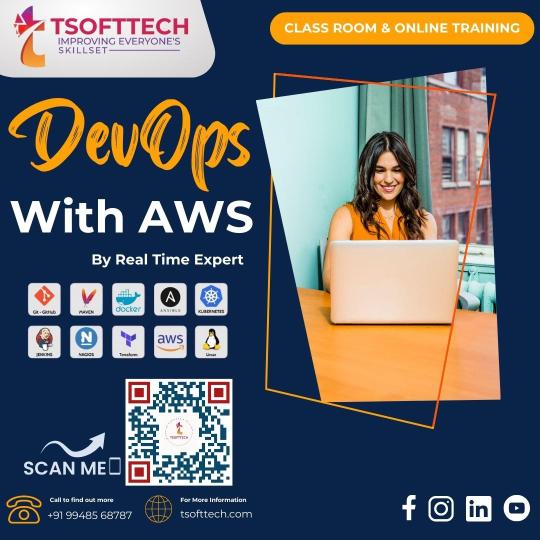
Tsofttech is a One of the best quality training center for online, Classroom and Corporate trainings In Hyderabad . We are providing DEVOPS Online Training through world wide. Tsofttech is excellent DEVOPS Training center in Hyderabad. After course we will give support for certification, Resume preparation and how to prepare for interviews.
For More: https://tsofttech.com/devops-online-training
Attend Free Demo On DevOps With AWS
Sign Up Now: https://bit.ly/3rp0W84
To Boost Your IT Career to Next Level by Expert Faculty's. Register now to reserve your spot.
3 notes
·
View notes
Text
AWS Devops training online

3 notes
·
View notes
Text
DevOps Training in Hyderabad | AWS DevOps Online Training
TOP Trending DevOps Tools in 2024 - Visualpath
Introduction:
In the fast-paced world of cloud computing and DevOps practices, staying up to date with the tools is crucial for success. As we look ahead to 2024, let's explore the top AWS DevOps tools that are expected to make an impact in the years to come.
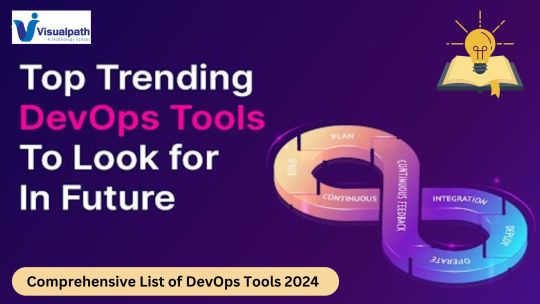
Here are some of the AWS DevOps tools that are set to revolutionize the DevOps landscape in 2024:
AWS Code Pipeline
AWS Code Pipeline is a continuous integration and continuous delivery service that automates the build, test, and deployment phases of your release process. With Code Pipeline, you can easily model, visualize, and automate the steps required to release your software. DevOps Training
AWS Code Build:
AWS Code Build is a fully managed continuous integration service that compiles your source code, runs tests, and produces ready-to-deploy software packages. Code Build eliminates the need to set up, operate, or scale your own build servers.
AWS Code Deploy
AWS Code Deploy is a deployment service that automates software deployments to various compute services such as Amazon EC2 instances, Lambda functions, and more. Code Deploy makes it easy to roll out updates, monitor deployments, and ensure consistent performance across your applications.
AWS Cloud Formation:
AWS Cloud Formation is a service that allows you to model and provision AWS resources using templates. With Cloud Formation, you can define your infrastructure as code, making it easy to replicate and scale your environments with a few clicks. DevOps Training Hyderabad
AWS Systems Manager:
AWS Systems Manager is a management service that helps you automate tasks, create workflows, and manage resources across your AWS infrastructure. With Systems Manager, you can easily configure, monitor, and automate operational tasks to improve your overall efficiency.
Conclusion:
As we look ahead to 2024, the use of AWS DevOps tools will continue to play a critical role in helping organizations build, test, and deploy software efficiently and effectively. By leveraging these top AWS DevOps tools, businesses can streamline their DevOps processes, drive innovation, and deliver value to their customers. Stay ahead of the curve by incorporating these tools into your DevOps toolkit and embrace the future of cloud computing.
Visualpath is one of the best DevOps Training institute in Hyderabad , India. We are providing Live Instructor-Led Online DevOps Training Classes delivered by experts from Our Industry. Will provide live project training after course completion. Enroll Now!!
Attend Free Demo
Call on - +91-9989971070
WhatsApp: https://www.whatsapp.com/catalog/917032290546/
Visit blog: https://visualpathblogs.com/
Visit https://www.visualpath.in/devops-online-training.html
#DevOpsTraining#DevOpsOnlineTraining#DevOpsTraininginHyderabad#DevOpsProjectTraining#DevOpsTrainingInstituteinAmeerpet#DevOpsOnlineTraininginHyderabad#DevOpsCertificationTrainingCourse#DevOpsOnlineTrainingInstitute#DevOpsTrainingInstituteinHyderabad#DevOpsCourseinHyderabad#DevOpsTrainingOnline#DevOpsTraininginAmeerpet#Devopsonlinecourses#devopscourseonline#awsdevopstraining#awsdevopsonline
0 notes
Text
Transitioning to DevOps: From Software Development to Seamless Integration
Exploring the DevOps Landscape
Transitioning from a software development role, I found myself navigating the complex terrain of DevOps. This methodology, aimed at harmonizing development and operations, highlighted the importance of collaboration, automation, and continuous enhancement from the Best Devops Course in Hyderabad.
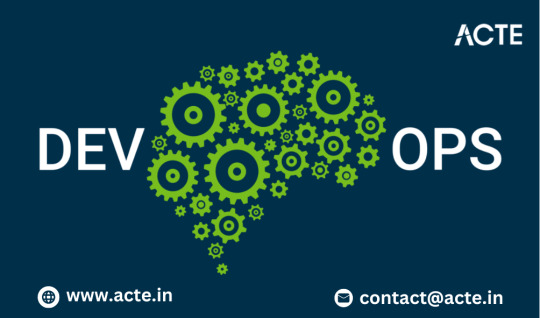
Mastering the Core Principles
My journey commenced with a thorough exploration of DevOps principles, drawing insights from influential texts like "The Phoenix Project" and "The DevOps Handbook." These resources illuminated the path towards continuous integration, delivery, and the cultivation of a collaborative work environment.
Developing Technical Expertise
To transition effectively into DevOps, I dedicated myself to mastering various technical domains:
Version Control Systems: Proficiency in Git for streamlined version control. CI/CD: Establishing automated pipelines using platforms such as Jenkins, Travis CI, and CircleCI. Configuration Management: Automating infrastructure tasks with Ansible, Puppet, and Chef. Containerization and Orchestration: Embracing Docker and Kubernetes for efficient application deployment and management. Cloud Platforms: Hands-on experience with AWS, Azure, and Google Cloud. Monitoring and Logging: Utilizing tools like Prometheus, Grafana, and the ELK stack for comprehensive system monitoring.
If you want to learn more about Data Science, I highly recommend the Devops online training because they offer certifications and job placement opportunities. You can find these services both online and offline.
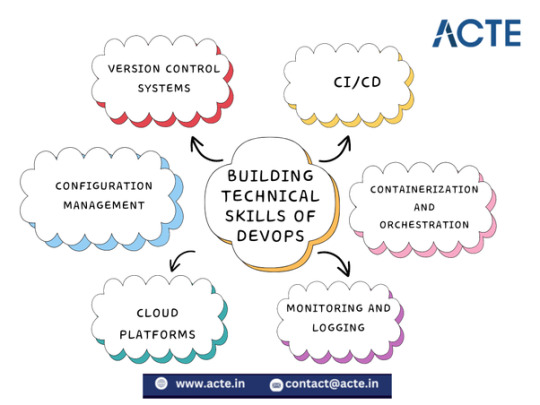
Cultivating Essential Soft Skills
In addition to technical prowess, the transition to DevOps emphasized the importance of nurturing soft skills, including:
Collaboration: Fostering close collaboration between development and operations teams. Communication: Ensuring clarity and effectiveness in communication channels. Continuous Learning: Staying updated with the latest DevOps trends and methodologies.
Engaging in Practical Endeavors
To complement theoretical knowledge with practical experience, I embarked on various initiatives:
Contributing to Open-Source Projects: Engaging with the community and contributing to collaborative endeavors. Personal Projects: Creating personal projects as testing grounds for experimenting with DevOps tools. Networking and Learning: Actively participating in meetups and conferences to network and learn from industry peers and professionals.
Navigating the Transition
Equipped with a solid foundation in DevOps principles and technical skills, I transitioned into DevOps roles by leveraging my background in software development. In my new capacity, I focused on automating processes, enhancing team collaboration, and ensuring system reliability through vigilant monitoring and logging practices.
Concluding Thoughts
Transitioning to DevOps presented its challenges, yet it was a profoundly rewarding journey. It demanded continuous learning and a steadfast commitment to refining processes and fostering collaboration. For those considering a similar path, I encourage you to embrace the journey, remain curious, and embody the DevOps ethos of perpetual improvement.
0 notes
Text
Rishi Online Training is the Best AWS with Devops Certification Training Institute in Hyderabad with 100% Placement support. Best AWS with Devops Online & Classroom Training Institute, We provide 100% Job Assurance Real Time Projects.
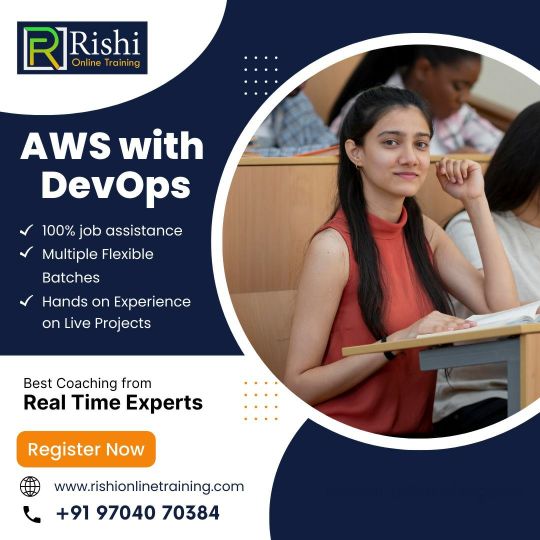
#devops institute in hyderabad#devops certification training#devops online training#devops training in hyderabad#devops training kukatpally#aws devops training#best devops training in hyderabad#devops#devops jobs#devops course in kukatpally#devops online course#azure#datacenter#software#aws#kubernetes
0 notes
Text
LI-MAT Soft Solutions: Elevating Careers with Comprehensive Summer Internship Programs in Bangalore
Are you a student eager to dive into IT and gain valuable experience this summer? Look no further than LI-MAT Soft Solutions, where we offer an extensive range of Summer Internships in Bangalore programs designed to propel your career forward. Whether you’re passionate about Python Programming, Angular JS, React JS, Node JS, Full Stack Java Course, Digital Marketing Course, AWS & DevOps, or Data Science with Python, our diverse courses ensure something for everyone.
Visit Us - https://www.limatsoftsolutions.co.in/winter-summer-training-kolkata
#Summer Internship in Bangalore#Summer Internship in Hyderabad#data structures and algorithms#Internships for CSE Students in Hyderabad
0 notes
Text
AWS DevSecops Tools using different security tools
AWS provides a range of tools and services that support DevOps and help automate the software development and deployment processes. DevOps Training
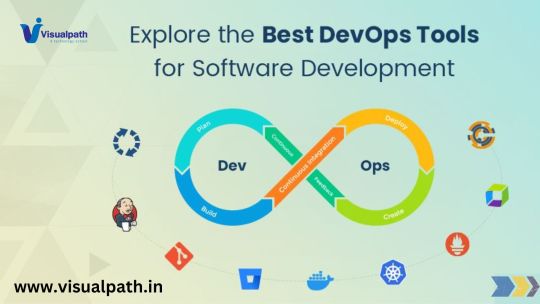
Here are some key AWS DevOps tools:
AWS CodePipeline: A fully managed continuous integration and continuous delivery (CI/CD) service that automates the build, test, and deploy phases of your release process.
AWS CodeBuild: A fully managed build service that compiles source code, runs tests, and produces software packages that are ready to deploy.
AWS CodeDeploy: Automates code deployments to any instance, including Amazon EC2 instances and instances running on-premises. It provides capabilities for both rolling updates and blue/green deployments.
AWS CodeCommit: A fully managed source control service that hosts secure Git-based repositories.
AWS CodeArtifact: A fully managed software artifact repository service that makes it easy for organizations of any size to securely store, publish, and share software packages used in their development processes.
AWS CodeStar: A service that enables you to quickly develop, build, and deploy applications on AWS. It integrates with other AWS services to provide a unified experience for managing your software development activities.
AWS CloudFormation: A service that enables you to model and provision AWS infrastructure resources using code. It allows you to define your infrastructure as code, making it easier to manage and replicate environments.
AWS CloudWatch: A monitoring and observability service that provides data and actionable insights for AWS resources, applications, and services. onlinedevopscourse
AWS Systems Manager: Helps you manage your infrastructure at scale, providing capabilities for automating tasks, patch management, configuration management, and more.
AWS Lambda: A serverless computing service that lets you run code without provisioning or managing servers. It can be used to automate tasks, respond to events, and build serverless applications.
These are just some of the key AWS DevOps tools. Depending on your specific requirements and use case, there may be other AWS services that can also be leveraged in a DevOps context.
Visualpath is the Leading and Best Software Online Training Institute in Hyderabad. Avail complete DevOps Training Worldwide. You will get the best course at an affordable cost.
Attend Free Demo
Call on - +91-9989971070
WhatsApp: https://www.whatsapp.com/catalog/919989971070
Visit https://www.visualpath.in/devops-online-training.html
#DevOpsTraining#DevOpsOnlineTraining#DevOpsTraininginHyderabad#DevOpsProjectTraining#DevOpsTrainingInstituteinAmeerpet#DevOpsOnlineTraininginHyderabad#DevOpsCertificationTrainingCourse#DevOpsOnlineTrainingInstitute#DevOpsTrainingInstituteinHyderabad#DevOpsCourseinHyderabad#DevOpsTrainingOnline#DevOpsTraininginAmeerpet#Devopsonlinecourses#devopscourseonline#onlinecoursesfordevops#Devopsonlinecourse#deveopscourse
0 notes
Text
How to Get the Most Out of Your DevOps Certification
In the rapidly evolving landscape of technology, DevOps has emerged as a crucial methodology to enhance collaboration and efficiency in software development and IT operations. As organizations increasingly prioritize DevOps practices, obtaining a DevOps certification becomes a valuable asset for professionals seeking to advance their careers. However, simply acquiring the certification is not enough; to truly reap the benefits, individuals must take strategic steps to maximize its value. In this blog, we'll explore how you can get the most out of your DevOps certification.
DevOps training in Hyderabad Where traditional boundaries fade, and a unified approach to development and operations emerges.
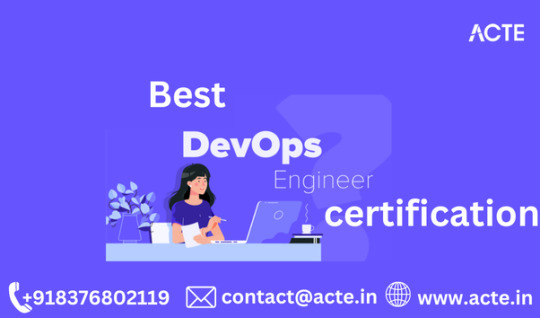
Understanding the Certification Landscape
1. Recognizing the Need for Certification
In the dynamic field of DevOps, certifications validate your skills and enhance your marketability.
Choosing the right certification depends on your career goals and the skills you want to acquire.
2. AWS Certified DevOps Engineer
Why AWS?AWS dominates the cloud computing space, and this certification focuses on DevOps practices within the AWS ecosystem. Ideal for professionals working extensively with AWS services.
3. Docker Certified Associate
Mastering ContainerizationDocker is pivotal in DevOps for containerization. This certification proves your proficiency in Docker and container orchestration. Suitable for those working on containerized applications.
4. Microsoft Certified: Azure DevOps Engineer Expert
Azure-Centric ExpertiseTailored for those working with Microsoft Azure, this certification emphasizes DevOps practices specific to the Azure platform. A valuable certification for organizations leveraging Azure services.
5. Red Hat Certified Engineer in DevOps
Open-Source ExcellenceIdeal for those inclined towards open-source technologies, especially Red Hat Linux.Focuses on DevOps principles within the Red Hat ecosystem.
6. Consider Your Career Path
Assess Your EnvironmentConsider the cloud platform or tools predominantly used in your workplace. Align your certification choice with the technologies relevant to your current or desired job role. Elevate your career prospects with our DevOps online course – because learning isn’t confined to classrooms, it happens where you are
7. Personalize Your Learning Path
Tailor Certifications to Your GoalsDevOps is diverse; your certification should align with your career goals. If your organization heavily uses AWS, the AWS Certified DevOps Engineer might be your best bet.
8. Keep Evolving
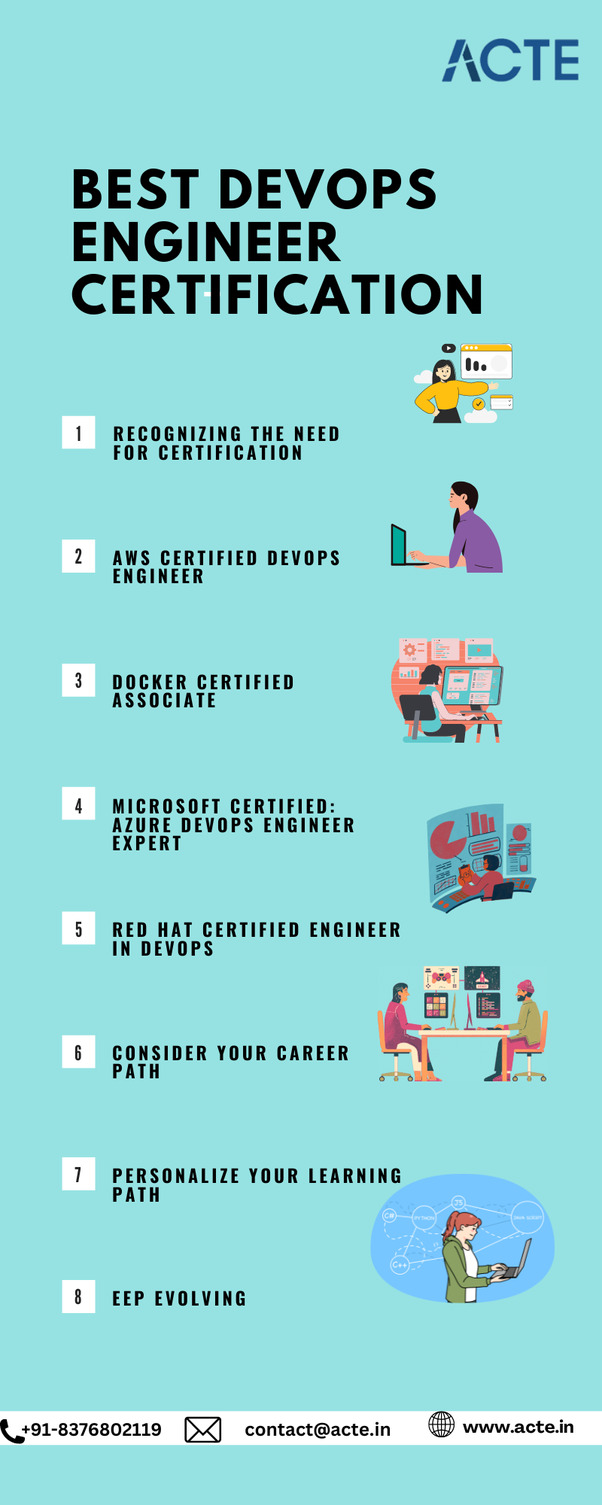
DevOps is DynamicThe best certification today might evolve tomorrow. Stay updated on emerging technologies and adapt your certifications accordingly. Continuous learning is a hallmark of a successful DevOps engineer.
Earning a DevOps certification is a commendable achievement, but its true value lies in how you leverage it to enhance your skills, contribute to your organization, and advance your career. By understanding core concepts, gaining hands-on experience, staying updated, engaging with the community, applying DevOps practices, seeking feedback, and documenting your achievements, you can maximize the benefits of your DevOps certification and position yourself as a valuable asset in the ever-evolving world of technology.
0 notes
Text
Why Pursuing a Career in DevOps is a Smart Choice
High Demand and Job Security
The need for DevOps experts is on the rise, providing substantial job security and numerous prospects for career advancement
from the Best Devops Course in Hyderabad.

Attractive Salaries
DevOps professionals rank among the highest earners in the IT sector due to their crucial role in optimizing processes and enhancing efficiency.
Varied Career Paths
The DevOps field offers a range of roles such as DevOps Engineer, Site Reliability Engineer, and Automation Architect, allowing for diverse career trajectories.
Ongoing Learning and Development
With its ever-evolving nature, the DevOps field ensures constant professional growth through the continuous introduction of new tools and methodologies.
The Future of DevOps
If you want to learn more about Data Science, I highly recommend the Devops online training because they offer certifications and job placement opportunities. You can find these services both online and offline.

Digital Transformation
As businesses transform digitally, the importance of efficient software delivery via DevOps becomes increasingly critical.
Cloud Computing
The expansion of cloud computing fuels the adoption of DevOps, with services like AWS, Azure, and Google Cloud enhancing its importance.
Automation and AI Integration
Integrating automation and AI into DevOps processes will further boost efficiency and predictive capabilities.
Building Resilient and Scalable Systems
DevOps is key to developing robust and scalable systems, vital for businesses that depend on digital solutions.
Conclusion
With high demand, competitive pay, diverse career options, and continuous learning opportunities, DevOps remains highly relevant. For those passionate about technology and bridging development and operations, a career in DevOps is both promising and rewarding.
0 notes
Text
Unlocking the Secrets of Learning DevOps Tools
In the ever-evolving landscape of IT and software development, DevOps has emerged as a crucial methodology for improving collaboration, efficiency, and productivity. Learning DevOps tools is a key step towards mastering this approach, but it can sometimes feel like unraveling a complex puzzle. In this blog, we will explore the secrets to mastering DevOps tools and navigating the path to becoming a proficient DevOps practitioner.
Learning DevOps tools can seem overwhelming at first, but with the right approach, it can be an exciting and rewarding journey. Here are some key steps to help you learn DevOps tools easily: DevOps training in Hyderabad Where traditional boundaries fade, and a unified approach to development and operations emerges.
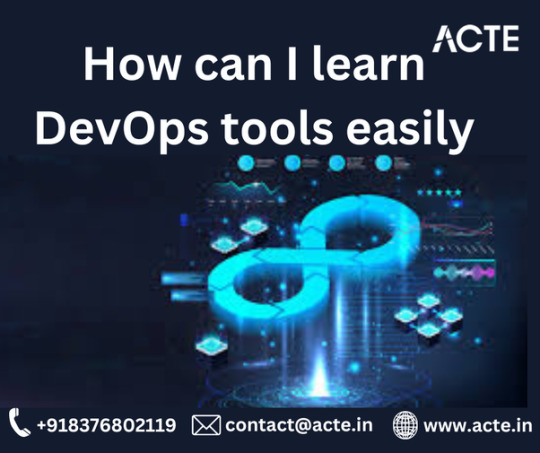
1. Understand the DevOps culture: DevOps is not just about tools, but also about adopting a collaborative and iterative mindset. Start by understanding the principles and goals of DevOps, such as continuous integration, continuous delivery, and automation. Embrace the idea of breaking down silos and promoting cross-functional teams.
2. Begin with foundational knowledge: Before diving into specific tools, it's important to have a solid understanding of the underlying technologies. Get familiar with concepts like version control systems (e.g., Git), Linux command line, network protocols, and basic programming languages like Python or Shell scripting. This groundwork will help you better grasp the DevOps tools and their applications.
3. Choose the right tools: DevOps encompasses a wide range of tools, each serving a specific purpose. Start by identifying the tools most relevant to your requirements. Some popular ones include Jenkins, Ansible, Docker, Kubernetes, and AWS CloudFormation. Don't get overwhelmed by the number of tools; focus on learning a few key ones initially and gradually expand your skill set.
4. Hands-on practice: Theory alone won't make you proficient in DevOps tools. Set up a lab environment, either locally or through cloud services, where you can experiment and work with the tools. Build sample projects, automate deployments, and explore different functionalities. The more hands-on experience you gain, the more comfortable you'll become with the tools
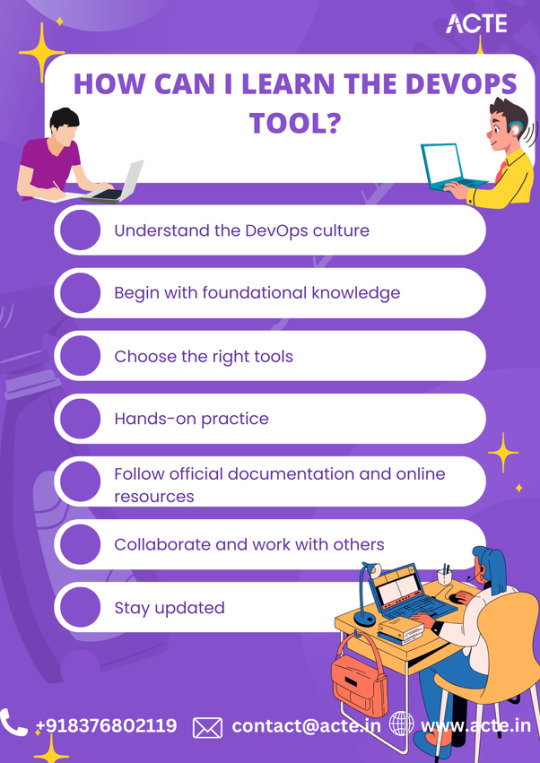
Elevate your career prospects with our DevOps online course – because learning isn’t confined to classrooms, it happens where you are
5. Follow official documentation and online resources: DevOps tools often have well-documented official resources, including tutorials, guides, and examples. Make it a habit to consult these resources as they provide detailed information on installation procedures, configuration setup, and best practices. Additionally, join online communities and forums where you can ask questions, share ideas, and learn from experienced practitioners.
6. Collaborate and work with others: DevOps thrives on collaboration and teamwork. Engage with fellow DevOps enthusiasts, attend conferences, join local meetups, and participate in online discussions. By interacting with others, you'll gain valuable insights, learn new techniques, and expand your network. Collaborative projects or open-source contributions will also provide a platform to practice your skills and learn from others.
7. Stay updated: The DevOps landscape evolves rapidly, with new tools and practices emerging frequently. Keep yourself updated with the latest trends, technological advancements, and industry best practices. Follow influential blogs, read relevant articles, subscribe to newsletters, and listen to podcasts. Being aware of the latest developments will enhance your understanding of DevOps and help you adapt to changing requirements.
Mastering DevOps tools is a continuous journey that requires dedication, hands-on experience, and a commitment to continuous learning. By understanding the DevOps landscape, identifying core tools, and embracing a collaborative mindset, you can unlock the secrets to becoming a proficient DevOps practitioner. Remember, the key is not just to learn the tools but to leverage them effectively in creating streamlined, automated, and secure development workflows.
0 notes
Text
Best AWS with DevOps Certification Training Course from Real Time Experts. 100% Job Support for Freshers & Working Professionals. Get hands-on and practical with tools like Git, Docker, Chef, Jenkins, Puppet, and Nagios.
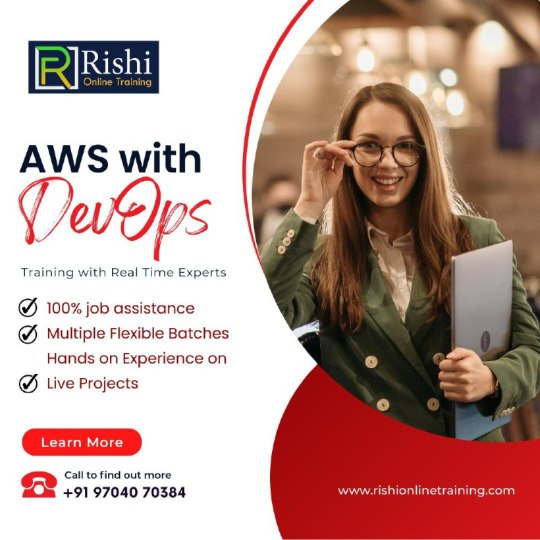
#devops#devops certification training#devops online training#devops training kukatpally#devops training in hyderabad#devops course in kukatpally#best devops training in hyderabad#aws devops training#devops jobs#devops online course#aws#kubernetes#cloud computing#software
0 notes
Text
Docker Online Training | Visualpath
Docker Machine and Docker Swarm: How They Work?
Introduction:
Docker, with its containerization technology, has revolutionized how applications are built, shipped, and deployed. However, managing Docker containers across various environments can still be a daunting task, especially when dealing with multiple hosts or cloud providers. This is where Docker Machine comes into play, offering a streamlined approach to managing Docker hosts regardless of the underlying infrastructure. - Docker and Kubernetes Training
Docker Machine:
Docker Machine is a tool that enables developers to create and manage Docker hosts on local machines, remote servers, or cloud providers effortlessly. It abstracts away the complexity of setting up Docker environments by automating the provisioning process. With Docker Machine, developers can easily spin up multiple Docker hosts, each with its own configuration, to run containerized applications. - Kubernetes Online Training
Simplified Deployment Workflow:
One of the key benefits of Docker Machine is its simplified deployment workflow. Instead of manually configuring Docker hosts on different platforms, developers can use Docker Machine to automate the process. By simply running a few commands, they can create Docker hosts on local machines for development or on remote servers for production deployment.
Multi-Cloud Support:
Docker Machine offers support for multiple cloud providers, including Amazon Web Services (AWS), Microsoft Azure, Google Cloud Platform (GCP), and more. This allows developers to deploy Docker hosts on their preferred cloud infrastructure without having to deal with the intricacies of each provider's setup process. - Docker Online Training
Scaling with Ease:
Scaling containerized applications can be challenging, especially when dealing with a large number of Docker hosts. Docker Machine simplifies the scaling process by allowing developers to quickly add or remove hosts as needed. Whether it's scaling horizontally to handle increased traffic or vertically to accommodate resource-intensive workloads, Docker Machine provides the tools to effortlessly manage the underlying infrastructure.
Integration with Docker Swarm:
For orchestrating and managing clusters of Docker hosts, Docker Machine seamlessly integrates with Docker Swarm. Developers can use Docker Machine to create Swarm nodes across multiple hosts, enabling high availability and fault tolerance for their applications.
Conclusion:
In conclusion, Docker Machine is a powerful tool for simplifying the management of Docker hosts across various environments. By automating the provisioning process and providing support for multi-cloud deployment, Docker Machine enables developers to focus on building and deploying applications rather than worrying about infrastructure setup.
Visualpath is the Leading and Best Institute for learning Docker And Kubernetes Online in Ameerpet, Hyderabad. We provide Docker Online Training Course, you will get the best course at an affordable cost.
Attend Free Demo
Call on - +91-9989971070.
Visit : https://www.visualpath.in/DevOps-docker-kubernetes-training.html
Blog : https://dockerandkubernetesonlinetraining.blogspot.com/
#docker and kubernetes training#docker online training#docker training in hyderabad#kubernetes training hyderabad#docker and kubernetes online training#docker online training hyderabad#kubernetes online training#kubernetes online training hyderabad
0 notes
Text
Mastering DevOps: What You Need to Know
DevOps, short for Development and Operations, is a set of practices that aims to automate and improve the collaboration between software developers and IT operations. It has become a crucial approach in modern software development, fostering a culture of continuous integration, continuous delivery, and continuous improvement. In this blog, we'll explore the essential aspects of mastering DevOps and why it's integral to the success of modern software development projects.
DevOps has emerged as an essential practice in the world of software development and operations. It brings together the best of both worlds by integrating development and operations teams to deliver software faster and more efficiently. If you're looking to embark on a career in DevOps or simply want to understand this field better, there are several key areas you should focus on learning."In the world of continuous improvement, DevOps training in Hyderabad is the compass that guides your team towards efficiency and innovation."
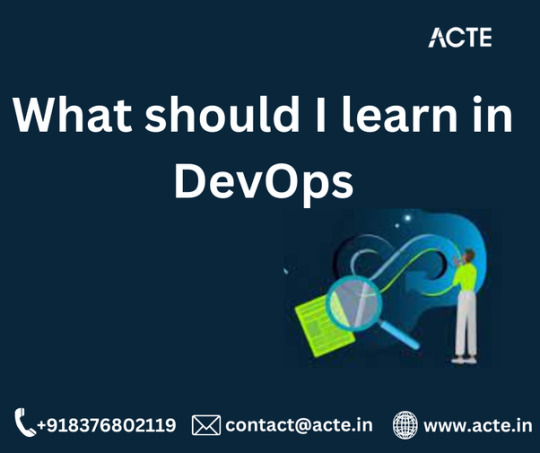
Infrastructure as Code (IaC): IaC refers to the practice of managing and provisioning infrastructure through machine-readable definition files rather than manual processes. Tools like Terraform and Ansible are widely used in the industry to automate infrastructure provisioning and configuration. Learning IaC will enable you to create reproducible and scalable infrastructure, which is crucial in a DevOps environment.
Continuous Integration and Continuous Deployment (CI/CD): CI/CD is at the heart of DevOps. It involves automating the process of building, testing, and deploying software changes. Tools like Jenkins, GitLab CI/CD, and CircleCI are commonly used for this purpose. Understanding CI/CD pipelines and how to set them up will allow you to streamline software development workflows and rapidly release new features.
Configuration Management: Configuration management involves managing the configuration of systems and applications in a consistent and scalable manner. Tools like Puppet, Chef, and Ansible can help you automate the deployment and configuration of software across multiple servers. By mastering configuration management, you'll be able to maintain consistency across environments and reduce manual errors.
Containerization: Containers have revolutionized the way applications are deployed and managed. Docker is the most popular containerization platform, allowing developers to package their applications with all their dependencies into portable units. Learning Docker will enable you to create lightweight and isolated environments for your applications, making deployment easier, faster, and more efficient. The power of DevOps at your fingertips: Our online DevOps course brings industry expertise to your screen, making mastery just a click away.
Monitoring and Logging: In a DevOps environment, it's crucial to have visibility into the performance and health of your systems and applications. Tools like Prometheus, Grafana, and ELK stack (Elasticsearch, Logstash, Kibana) are commonly used for monitoring and logging. Being proficient in these tools will help you identify bottlenecks, troubleshoot issues, and ensure that your systems are running smoothly.
Cloud Computing: With the rapid adoption of cloud platforms like AWS, Azure, and Google Cloud, knowing cloud computing is essential for a DevOps professional. Understanding how to provision resources, configure networking, and leverage cloud services will empower you to build scalable and resilient infrastructures.
Collaboration and Communication: DevOps is not just about tools and technologies; it's also about fostering collaboration between different teams. Strong communication skills and the ability to work effectively with developers, operations personnel, and other stakeholders are key in a DevOps environment.
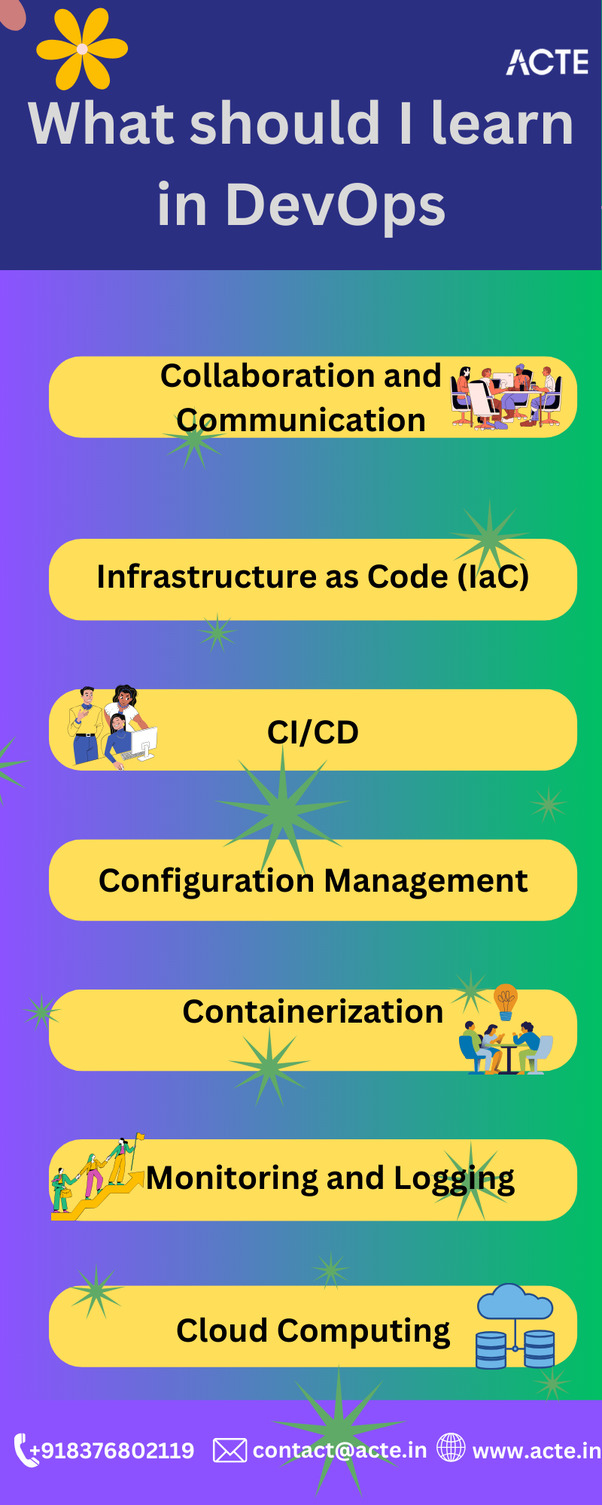
Mastering DevOps is a journey that involves embracing a culture of collaboration, automation, and continuous improvement. By understanding the DevOps lifecycle, implementing automation, adopting CI/CD pipelines, using Infrastructure as Code, promoting collaboration, monitoring effectively, and integrating security practices, development and operations teams can work together seamlessly to deliver high-quality software faster and more reliably. As the landscape of technology continues to evolve, staying current with DevOps practices is essential for any organization striving for agility and innovation in software development.
0 notes
Text
The Role of DevOps Engineers
DevOps engineers are responsible for implementing practices, tools, and processes to streamline development, testing, deployment, and operations, as demonstrated by the Best DevOps Course in Hyderabad.
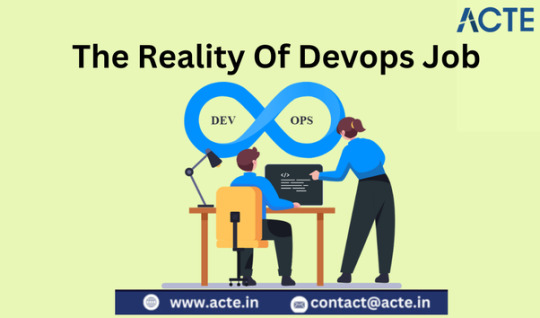
Key Skill Set
Coding and Scripting: Proficiency in scripting languages like Python, Bash, or PowerShell is essential for automating tasks.
CI/CD: DevOps engineers use tools such as Jenkins, GitLab CI/CD, or CircleCI to automate the build, test, and deployment processes.
Configuration Management: Knowledge of tools like Ansible, Puppet, or Chef is crucial for maintaining consistent infrastructure.
Containerization and Orchestration: Understanding Docker and Kubernetes is vital for managing scalable and resilient applications.
Monitoring and Logging: Implementing monitoring and logging solutions is necessary to ensure the health of applications and infrastructure.
Cloud Computing: Familiarity with AWS, Azure, or Google Cloud is important for provisioning and managing cloud resources.
For those looking to learn more about Data Science, the DevOps online training program is highly recommended because it offers certifications and job placement opportunities, available both online and offline.
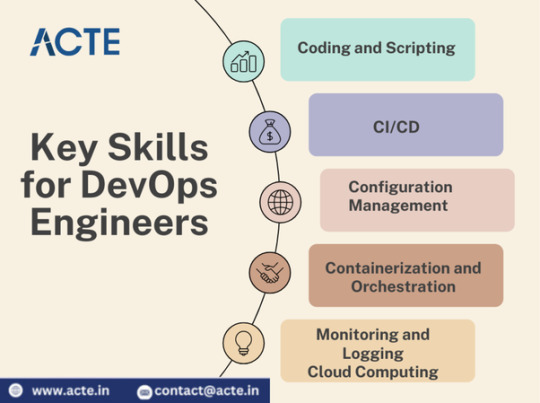
The Role in Action
DevOps engineers collaborate with development and operations teams to automate processes, optimize performance, and enhance resilience.
Challenges
Driving cultural change, staying updated with evolving technologies, and fostering collaboration are significant challenges in the DevOps field.
Conclusion
A career in DevOps is dynamic, challenging, and rewarding, enabling organizations to deliver software faster, more reliably, and at scale. Success in this field requires technical expertise, teamwork, continuous learning, and the ability to drive cultural change.
0 notes
Text
Unlocking the Key Skills for Becoming a DevOps Expert
In the ever-evolving landscape of software development and IT operations, the role of a DevOps expert has become increasingly crucial. DevOps, a combination of development and operations, focuses on fostering collaboration, communication, and integration between software developers and IT operations professionals. To excel in this dynamic field, acquiring specific skills is essential. In this blog post, we will explore the key skills that can unlock the path to becoming a DevOps expert.
Explore top-notch DevOps training in Hyderabad to enhance your skills and accelerate your career. Gain hands-on experience with cutting-edge tools and methodologies, guided by industry experts. #ITTraining #DevOpsSkills #CareerBoost #HandsOnLearning
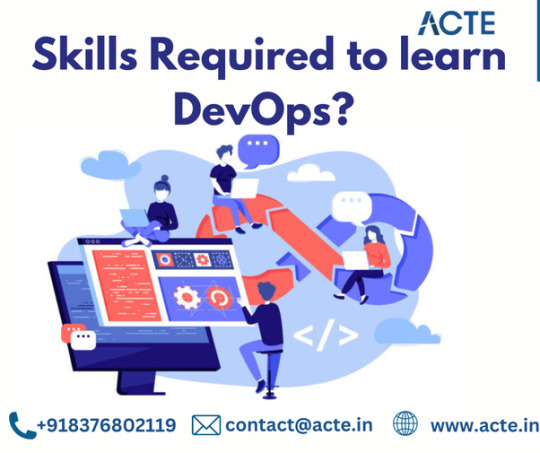
1. Automation: DevOps heavily relies on automation to streamline processes and eliminate manual tasks. It is crucial to have a strong understanding of automation tools like Jenkins, Ansible, or Puppet to automate build, deployment, and testing processes.
2. Continuous Integration and Continuous Deployment (CI/CD): CI/CD practices are at the core of DevOps. Understanding how to implement, configure, and manage CI/CD pipelines using tools like Git, Jenkins, and Docker is essential for efficient software delivery.
3. Infrastructure as Code (IaC): IaC involves managing infrastructure resources programmatically using tools like Terraform or CloudFormation. It is important to learn how to define and provision infrastructure resources using code, enabling scalability, consistency, and version control.
4. Cloud Computing: Familiarity with cloud platforms like AWS, Azure, or GCP is essential for modern DevOps practices. Understanding cloud concepts, provisioning resources, and managing cloud services will enable efficient infrastructure management and scalability.
5. Containerization: Containerization technologies like Docker and Kubernetes have become central to DevOps practices. Learning how to build, manage, and orchestrate containers will allow for easy deployment, scaling, and portability of applications. Elevate your tech journey with DevOps online courses – unlocking doors to innovation, one lesson at a time. 🚀🖥️ #DevOpsMastery #TechInnovation #OnlineLearningAdventure.
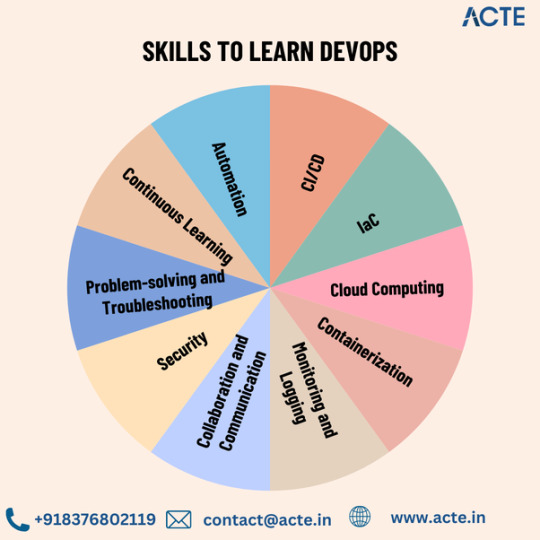
6. Monitoring and Logging: DevOps emphasizes continuous monitoring and feedback. Familiarity with monitoring tools like Prometheus, Grafana, or ELK Stack (Elasticsearch, Logstash, Kibana) is important to track application performance, detect issues, and analyze logs.
7. Collaboration and Communication: DevOps requires strong collaboration and communication skills. Being able to work effectively in cross-functional teams, adopt Agile methodologies, and effectively communicate with developers, operations, and stakeholders is crucial for successful DevOps implementation.
8. Security: Understanding security principles and best practices is essential for DevOps. Knowledge of secure coding practices, vulnerability scanning, and implementing security controls in CI/CD pipelines will ensure the integrity and safety of applications.
9. Problem-solving and Troubleshooting: DevOps professionals need to be skilled in problem-solving and troubleshooting. The ability to identify, analyze, and resolve issues efficiently is crucial for maintaining smooth operations and minimizing downtime.
10. Continuous Learning: Lastly, DevOps is a rapidly evolving field. Being open to continuous learning and staying updated with new tools, technologies, and industry trends is essential for a successful career in DevOps.
Becoming a DevOps expert requires a multifaceted skill set that goes beyond traditional development or operations roles. By mastering automation, containerization, CI/CD, collaboration, monitoring, security, and maintaining a commitment to continuous learning, individuals can unlock the key skills needed to thrive in the dynamic world of DevOps. As organizations increasingly embrace DevOps practices, those with these essential skills will play a pivotal role in driving innovation and ensuring the success of software development initiatives.
0 notes